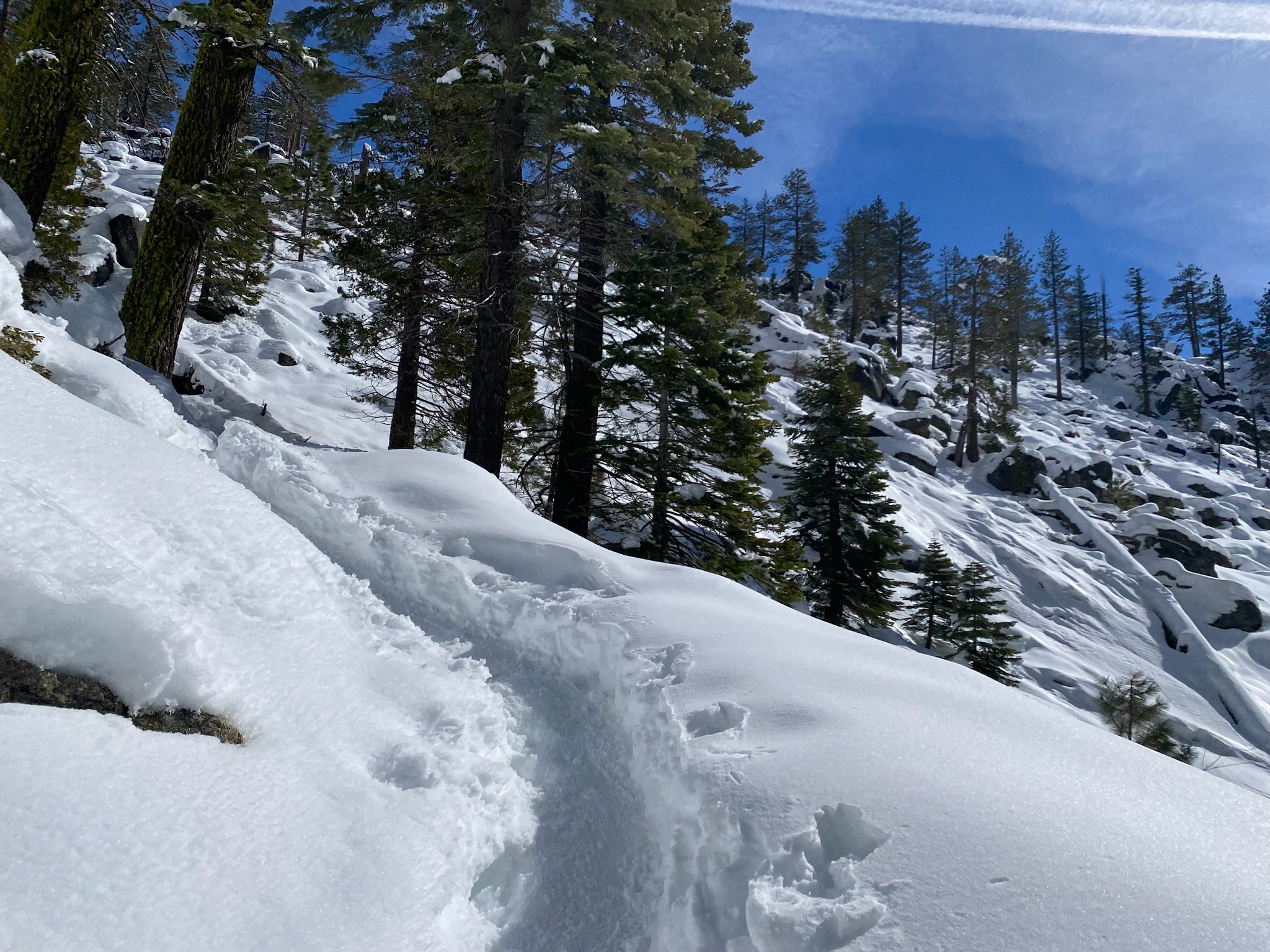Yosemite National Park is open 24 hours a day, 365 days a year (NPS Hours & Seasons). That said, “open” doesn’t mean “everything is accessible”. Some roads and services are seasonal, and the weather can throw curveballs. Here’s what you need to know to make a winter Yosemite trip that’s both magical and safe.
What’s Generally Open (and What’s Not)
Roads & Entrances
Three main entrances into the park stay open year-round:
- CA-41 from Oakhurst
- CA-140 from Mariposa
- CA-120 West from Groveland
However, Tioga Road and Glacier Point Road are generally closed in winter due to snow. Always check the Current Conditions page before heading out.
Trails & Access
Many lower-elevation trails remain open, including Lower Yosemite Falls, Bridalveil Falls, Mirror Lake, and sections of the Mist Trail. High-elevation routes like Four Mile Trail are usually closed or unsafe due to ice and snow.
Winter Recreation
Winter might actually be Yosemite’s best-kept secret. You can:
- Ski or snowboard at Badger Pass Ski Area
- Explore by snowshoe or cross-country ski
- Visit museums and the Yosemite Exploration Center in the valley
And best of all, there are far fewer crowds compared to summer.

What to Expect: Weather, Conditions & Hazards
- Variable weather: Winter in Yosemite can swing from sunny and mild to full snowstorms. Bring layers
- Icy trails: Bridges and shaded paths can get slick; traction devices are recommended
- Chain requirements: Always carry tire chains; they may be mandatory during storms
- Limited services: Some lodges, stores, and shuttles reduce hours or close seasonally
- Holiday crowds: Around Christmas and New Year’s, lodging can fill quickly.
How to Prepare
- Check forecasts and road conditions
Review the weather and road conditions before you go. - Layer smartly
Moisture-wicking base, insulated mid, and waterproof outer layers are key. - Wear proper footwear
Waterproof boots and microspikes can help you stay steady on your feet as you explore. - Pack safety gear
Bring a headlamp, batteries, emergency blanket, and map. - Securer Reservations where needed
Lodging and some winter services should be booked ahead. - Plan shorter or lower-elevation hikes
Base your plans around valley-level hikes and aim for trails that are more likely to be cleared. - Have a fallback plan
If your intended trail or road is closed, it is okay to pivot. Enjoy the hot tub and firepits at Yosemite View Lodge, visit indoor attractions such as the Climbing Museum, or do snowshoe loops.

Why Winter in Yosemite Is Worth It
If you aren’t deterred by a little chill, Yosemite in winter can feel like you have the entire park to yourself. Without summer crowds, the quiet, snow-laced forests and frozen waterfalls can hit in a deeply peaceful way.
Plus, iconic Yosemite features such as Half Dome, El Capitan, and Yosemite Falls look beautiful draped in snow. The sweet travel spot is when roads are clear, snow is settled, and you get that hush that only comes in the off-season.
Planning a winter visit to Yosemite? Explore where to stay near Yosemite this winter.

